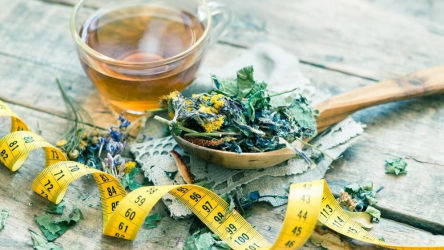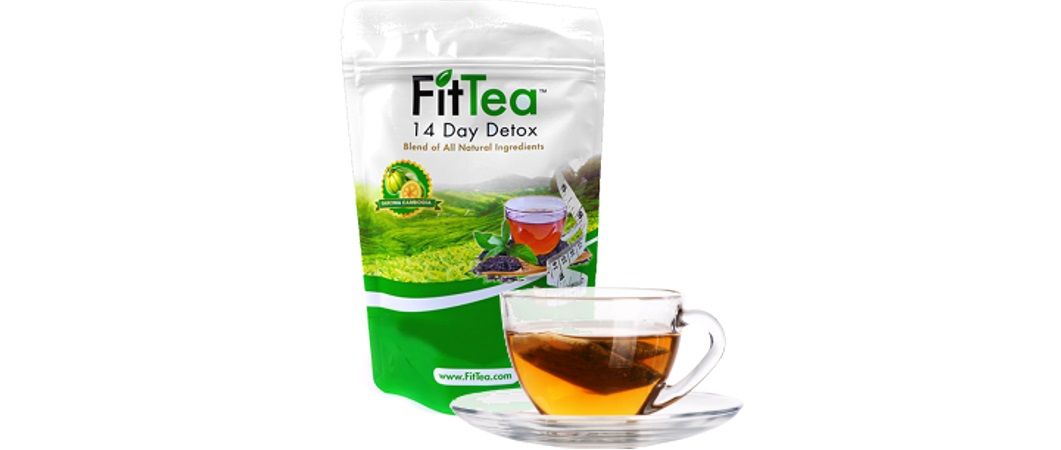
Fit Tea is a “detoxifying tea blend” that combines three forms of tea with a number of other plant-based ingredients. The manufacturer boldly claims that the product can strengthen your metabolism, cleanse the digestive system, and reduce bloating.
However, marketing of this nature should always be put to the test scientifically. That’s why we decided to write this Fit Tea review to examine the touted benefits independently. Let’s get started.
What is Fit Tea?
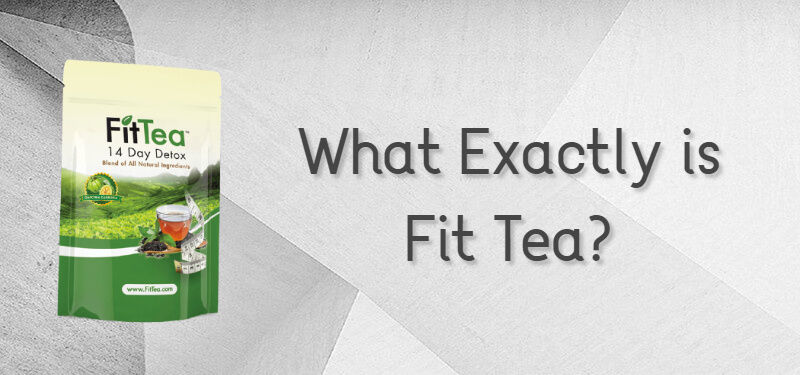
Fit Tea is easily one of the most recognizable “teatoxes” on the market. This is thanks in part to some very high profile endorsements on social media. Kylie Jenner is just one of the celebrities to have featured Fit Tea in their posts.
This tells us a lot about the financial clout of the brand because ads from the first family of social media don’t come cheap. The money Fit Tea spend on influencer marketing is reflected in the product’s price tag: $24.99 for a 14 day supply and $44.99 for a 28 day supply.
The ultimate aim of this review is simple. We want to compare the claims Fit Tea make in support of their product with the usefulness of the actual ingredients in each tea bag. The only way to do that is to carefully analyze the science and then evaluate whether or not the tea works.
The ingredients list is the best place to start:
- Sencha and matcha green tea are popular Japanese-style teas. Both contain caffeine (like all tea that hasn’t specifically been processed to remove it). All Fit Tea ingredients are apparently sourced organically, including the sencha and matcha.
- Oolong tea is prepared from the same leaves that are used to create black and green teas. Different processing methods are employed in order to produce this variety.
- Rooibos is another plant-based ingredient that has become popular as a caffeine-free alternative to tea. It is brewed in much the same way as regular tea.
- Garcinia cambogia is an extract from a fruit that is native to Asia. It supposedly promotes weight loss but there is a lack of strong evidence to prove this effect.
- Pomegranate fruit is dried and added to the tea for flavor. There is no evidence of health benefits from the small quantities of antioxidants and phytochemicals present in dried pomegranate.
- Stevia is a plant-based sweetener. It contains no calories and has been marketed as a natural alternative to artificial sweeteners in various drinks and food products.
- Guarana is a plant native to South America. Seeds from this fruit contain caffeine and potentially other stimulant chemicals. It is a common ingredient in energy drinks.
- Ginger root is widely used as a spice in cooking and as herbal medicine. It imparts a strong, distinctive flavoring but is only present in Fit Tea in very small quantities.
- Lemon juice is both a flavorant and a natural preservative whose acid content can help maintain the taste and color of other ingredients in the tea.
- Honey adds sweet notes to the flavor of the tea.
Fit Tea also contains citric acid and sea salt. Both of these ingredients serve as preservatives. They are also effective antibacterials and therefore prolong the shelf-life of food products.
Putting Fit Tea To The Test: Will It Work?
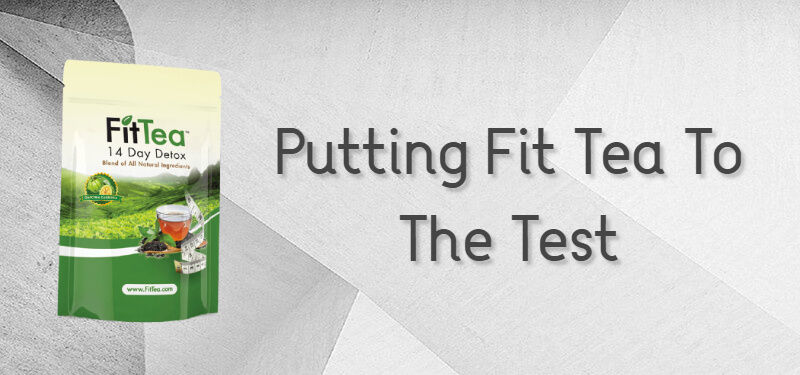
TV spots, social media endorsements, and before-and-after photos catch people’s attention and drive sales. In cases like this, real science can end up being buried under an avalanche of marketing.
Testimonials and eye-grabbing photos work because they present us with what seems like an easy fix for a complex problem. However, it’s our role to debunk claims that rely on poor data and instead steer consumers toward better decisions.
Green Tea / Oolong Tea
Although the popularity of detox teas has soared in recent years they remain a largely unregulated product. Detox teas lack any strict definition and are typically marketed toward a specific health goal like weight loss or improved skin appearance. Emphasis is also sometimes placed on recovering from periods of unhealthy living.
Bizarrely, not all detox teas actually contain ‘tea’ — that is, the leaves of the Camellia sinensis shrub from which black, green, and other forms of tea are produced.
However, Fit Tea’s formula includes two forms of green tea (sencha and matcha) as well as oolong tea. Green tea contains molecules called catechins, the most potent of which is EGCG (1).
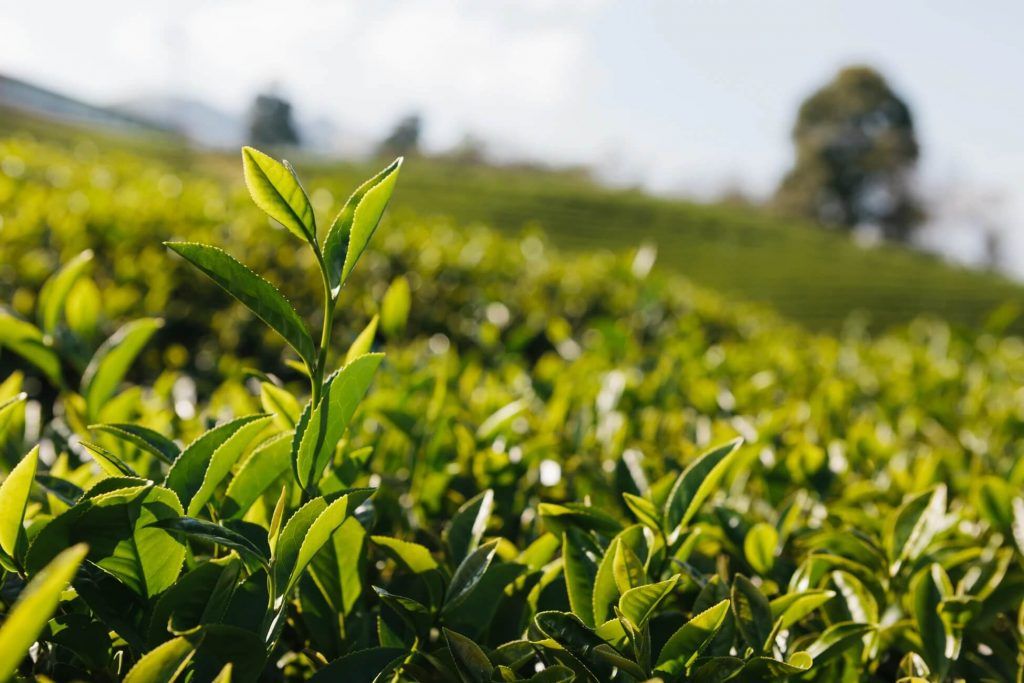
Fit Tea’s website states that EGCG is responsible for their product’s “metabolism-boosting effect”. On average, a typical cup of brewed green tea contains between 50 and 100mg of the antioxidant EGCG (2).
A study conducted on young males taking 600mg of EGCG found no significant effect on either fat oxidation or resting energy expenditure (3).
Meanwhile, another small study in which participants took 470mg of EGCG found no increase in metabolic rate (4).
However, green tea and oolong tea also contain caffeine. A study on male athletes found that caffeine at doses of 3mg/kg of body weight was able to boost fat oxidation during exercise. On the other hand, 270mg of EGCG had no effect on fat oxidation (5).
Long-term use of green tea catechins may, however, increase the percentage of energy that comes from fat in athletic people during exercise (6).
Another analysis concluded that green tea (catechins and caffeine) is capable of boosting fat oxidation due to a combination of both catechin and caffeine content (7).
There are a number of reasons to be cautious about the ability of Fit Tea to increase fat burning or to boost your metabolic rate:
- Most studies that have demonstrated increases in fat oxidation after green tea consumption use higher doses of caffeine and catechins than what is present in a single brewed cup of tea per day (8).
- People who consume high amounts of caffeine already and are habituated to the substance are less likely to see sustained weight control (9).
- 14 bags of Fit Tea retail at $24.99. The benefits of green tea catechins and caffeine can be enjoyed at a much lower price. Other brands sell 100 bags of organic green tea for as little as $4.99.
Garcinia cambogia
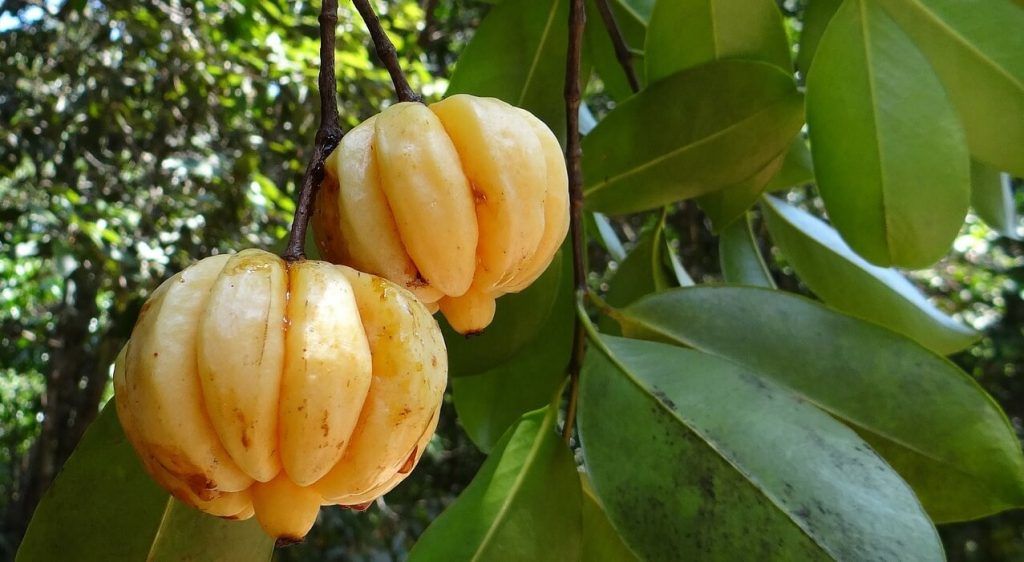
Garcinia cambogia is a plant native to parts of Asia that is recognized for its edible fruit. It has a naturally sour flavor and is a common culinary ingredient in local curry dishes.
It stormed to attention in 2012 as a faddish weight loss product thanks to a feature by Dr. Oz (who would later be chided in a Senate hearing for making unfounded claims about dietary supplements).
The purported slimming and fat-burning properties are either non-existent or modest at best depending on the source of research.
A study involving obese adults found no significant benefits in weight loss or fat mass loss from supplementation with garcinia cambogia (10).
Another study involving overweight adults found that ten weeks of supplementation at 2g/day did not promote weight loss or favorable changes in body fat percentage. Garcinia cambogia also failed to produce improvements in cholesterol profile (11).
However, one study of overweight females found that 2.4g/day for 12 weeks combined with a reduced-calorie diet led to somewhat higher body weight reduction compared to women following the diet alone (12).
Researchers in this study pointed out that the effect was probably not related to reduced appetite because dietary compliance wasn’t higher in women supplementing with garcinia cambogia.
Guarana

Guarana is a plant native to South America where its powdered seeds are frequently consumed in herbal teas and soft drinks for their stimulant properties.
The guarana seed extract is also a common ingredient in energy drinks. Fit Tea’s vague labeling on its 14 and 28 Day Detox products makes it very difficult to establish exactly how much guarana extract is in each tea bag.
Nevertheless, there are virtually no high-quality studies pertaining to the effects of guarana on fat mass and metabolism. However, guarana is a very abundant source of caffeine — seeds from the plant have a caffeine concentration at least double that of coffee beans (13).
One study demonstrated an increase in metabolic rate following a dose of 4mg/kg of caffeine in overweight women. The extent of the increase in metabolic rate varied between women. However, all participants in the trial lost weight when combining caffeine supplementation with a reduced-calorie diet (14).
However, it is worth noting that trials investigating caffeine and weight loss often use a much higher dose of caffeine than what one would expect to find in a single brewed cup of Fit Tea. Caffeine can increase blood levels of adrenaline and this can in turn boost metabolism (15).
Another study found increases in resting metabolic rate in both sedentary and athletic persons after 300mg of caffeine was ingested. The increase in metabolism was greatest in sedentary people (16).
Results from studies investigating caffeine and weight loss have produced less promising results. Six months of caffeine supplementation at 200mg per day does not appear to result in fat loss and 100mg for 16 months also appears ineffective (17, 18).
It is possible that long-term use of caffeine leads to desensitization and this may limit its usefulness in bringing about sustained weight loss.
Ginger
Another interesting ingredient in Fit Tea is ginger. The distinctive flavor of ginger tends to inspire both delight and disgust in equal measure. Simply put, some people love it and others seem to hate it.
Although it’s impossible to know exactly why ginger is included in the Fit Tea recipe, it may be related to ginger’s role as an anti-nausea agent. Green tea is known to cause nausea in some people, especially when drunk on an empty stomach (19).
Luckily, ginger possesses fairly potent anti-nausea effects (20).
back to menu ↑Are The Health Claims Accurate?
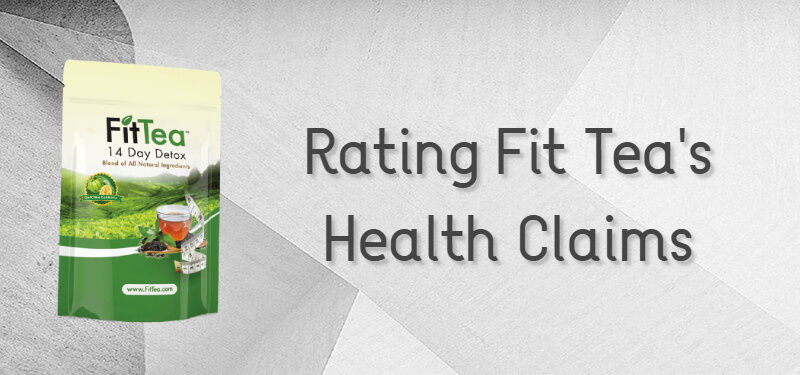
Earlier, we summarized the recipe of Fit Tea and then took some time to analyze the ingredients more closely.
In this section of our Fit Tea review, we’ll look at several of the product’s health-related claims and evaluate whether they’re likely to be true or false. All of the claims have been sourced directly from the manufacturer’s official website.
Claim: Fit Tea “Naturally” Detoxifies Your Body
It’s difficult to rule on the validity of a claim that is so poorly defined. Precisely which toxins does Fit Tea help purge from the body? Unfortunately, the manufacturer provides very little information.
“Detox” products have gone mainstream despite a lack of evidence that they work. You will almost certainly have seen diets and supplements before that promise to “cleanse” or “detoxify” your body by one means or another.
The concept of a detox is really just a marketing creation with no strict definition. After all, who wouldn’t want to remove “toxic” chemicals from their bodies?
Fortunately, our bodies are capable of eliminating toxins without the need for tea. Tea may, however, have other benefits unrelated to helping the body cleanse itself.
Many detox teas incorporate laxatives such as senna to increase the frequency of bowel movements. Although Fit Tea does not contain laxatives, the tea itself is a diuretic. This is because caffeine can increase the production of urine.
The liver is responsible for processing toxic substances in your body before they are released through sweat, urine, and feces. However, staying hydrated and avoiding unhealthy eating habits is all most healthy bodies need in order to carry out this role.
Rating: D
Claim: Fit Tea Strengthens Your Metabolism
Earlier we examined caffeine’s ability to increase metabolic rate. High doses of caffeine do appear to boost the metabolic rate in the short-term (16).
However, it is questionable whether or not caffeine can actually lead to sustained weight loss (17, 18). Another issue with Fit Tea in this regard is its inflated price tag.
Organic green tea can be purchased in bulk at a much lower price and will lead to much the same outcomes as Fit Tea.
Rating: C
Claim: Fit Tea Cleanses Your Digestive System
It is unclear exactly which ingredient in Fit Tea “cleanses” the digestive system. The tea itself does not appear to be of use in treating chronic constipation (21).
Many detox teas incorporate a herb called senna, which is a proven laxative (22, 23).
However, Fit Tea does not contain senna. If you are seeking a herbal tea to ease constipation then a blend that includes this herb may be a better choice.
Alternatively, consuming a fiber-rich diet and keeping yourself hydrated can help reduce the risk of constipation (24, 25).
Again, the excessive price of Fit Tea makes it a poor value option in improving digestive health.
Rating: D
Claim: Fit Tea Reduces Bloating
Ginger tea is sourced from the roots of a flowering plant native to Southeast Asia. It has found wide use across the world as a spice and as herbal medicine.
As Fit Tea contains ginger, it may be of some benefit in dealing with digestive issues. Ginger supplements have been shown to ease nausea and bloating (26).
However, this study was carried out with standardized ginger capsules, not ginger tea. Nevertheless, the active compounds in ginger are present in both supplement and tea preparations (27).
Because we don’t know exactly how much ginger is present in Fit Tea it is difficult to say conclusively whether it is enough to help ease digestive issues. Indeed, you may find ginger capsules and other ginger teas that offer better value for money.
Although ginger has a distinctive, spicy flavor, Fit Tea offsets these notes with honey, stevia, pomegranate, and lemon. This gives the tea an overall more fruity flavor.
Rating: C
Claim: Fit Tea Helps You Stay Fit, Healthy, and Happy
Caffeine may offer some modest benefits in the short-term. However, using Fit Tea will not allow you to bypass physical activity and healthy eating as a means of getting fitter.
Regular exercise and a reduced-calorie diet require more effort than sipping a cup of tea and this dilemma goes some way to explaining the popularity of ineffective ‘quick-fixes’.
Garcinia cambogia’s supposed fat-burning properties lack evidence and it is unclear whether the ginger content of Fit Tea is sufficient to meaningfully improve digestion.
In truth, no tea in the world is capable of keeping anyone fit, healthy, and happy. However, focusing your efforts on healthy living, exercise, and mental well-being might just do the trick.
Rating: F
Is Fit Tea Worth It?
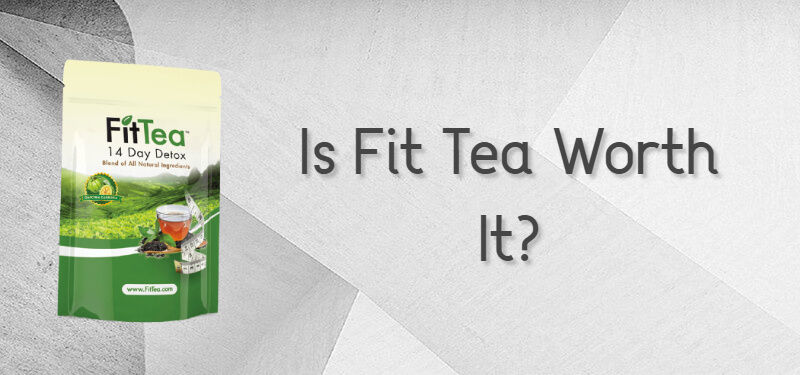
To put it bluntly: no. There is nothing wrong with consuming organic green tea as part of a healthy lifestyle. However, Fit Tea’s exaggerated claims and inflated price make it a poor option for savvy consumers.
High quality organic green tea can be found online at a significantly lower price point. For instance, Traditional Medicinals offer an organic green tea and ginger blend for just over $4 per box of 16. Meanwhile, sencha green tea and matcha green tea are available at a similar price.
Rooibos-based herbal teas and organic ginger root teas are also widely available as standalone products.
What Do Fit Tea Customers Say?

So far we’ve focused on the science behind Fit Tea but it’s always worth taking time to see what consumers have to say about a product.
On the official Fit Tea website, the 14 Day Detox product is supposedly rated as 4.8/5. There are 1,292 5-star reviews and just four 1-star reviews. It is not clear whether the Fit Tea team vet reviews to minimize the frequency of low ratings.
On Amazon.com, Fit Tea currently has a rating of 3.7/5. 18% of the 544 customer reviews are rated 1 star (the lowest possible). In contrast, 52% of the customer reviews are 5 stars (the highest possible). The vast majority of these reviews come from “verified purchasers”.
Some of the 5-star reviews on Amazon include photographs of buyers posing with the product at the beach and still others that appear to be from professional photo shoots. Although unusual, it is not possible to say with certainty whether these reviewers were incentivized or not.
Elsewhere, Fit Tea is rated 4.0/5 on Influenster, 4.0/5 on GNC.com, and 3.0/5 at Bed Bath & Beyond.
A purchaser named Christine comments on the convenience of the Fit Tea packaging and also compliments the pleasant taste of the tea. Another reviewer states that she managed to lose 11lbs using the product after struggling with her weight after pregnancy.
Many negative reviews come from people who feel that Fit Tea is overpriced. There are also numerous reviews from individuals who struggled to lose weight while using it. A purchaser named Amanda feels that Fit Tea “does nothing” and is a “waste of money”.
Another reviewer complains that the product left her with nausea and vomiting.
Fit Tea is listed on the Better Business Bureau (BBB) where it has 11 complaints in total. Unfortunately, it does not appear that Fit Tea is proactive in dealing with these complaints because they are all marked “unanswered”.
Persuasive sales videos are one prominent element of the Fit Tea marketing strategy:
These video advertisements are effective because they weave marketing material into a seemingly spontaneous conversation. This particular video borrows from the style of typical daytime TV scenarios.
Marketing of this variety also helps Fit Tea circumvent “ad-blindness”, whereby potential customers ignore or discount sales pitches when they realize they are being pitched to directly.
More Information
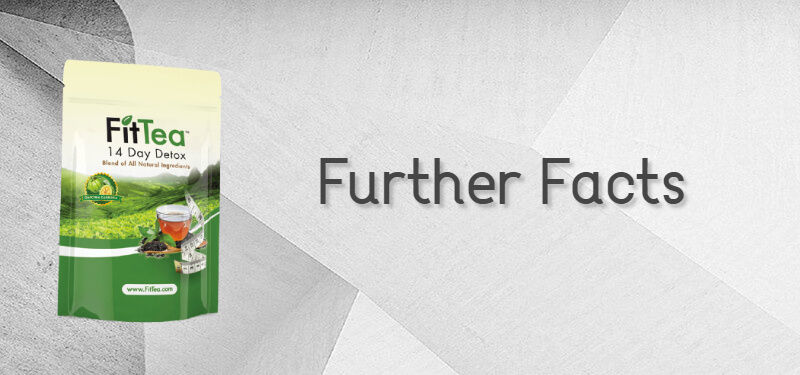
So far we’ve studied the science behind Fit Tea, debated whether it offers value for money, and looked at feedback from customers. Before we reach our verdict and final rating score for the product we’ll cover some important information for those readers who are already using it or still wish to buy it.
Where to buy it
Fit Tea is distributed both online and in-store. The list below contains our research regarding confirmed retailers and prices accurate at the time of publishing.
- Official website ($24.99 for 14 Day Detox / $44.99 for 28 Day Detox)
- GNC (available in select stores and online — $24.99 for 14 Day Detox / $42.99 for 28 Day Detox)
- Amazon.com ($21.99 for 14 Day Detox / $34.98 for 28 Day Detox)
- Vitamin Shoppe (available in select stores and online — $24.99 for 14 Day Detox / $44.99 for 28 Day Detox)
- Bed Bath & Beyond ($24.99 for 14 Day Detox / $44.99 for 28 Day Detox)
- Walmart (online-only — $23.99 for 14 Day Detox / $38.99 for 28 Day Detox)
It does not appear that Fit Tea comes with a money-back guarantee. However, orders made through third-party retailers like Amazon may allow you to return unopened product for a full refund.
How much does it cost?
The price of Fit Tea varies across retailers. Amazon appears to offer the cheapest price for online purchases of both the 14 day and 28-day detox products. In-store, GNC and Vitamin Shoppe sell the 14-day product at the same price but GNC is slightly cheaper for purchases of the 28-day product.
At the time of publishing, we cannot find any evidence of active coupons, promo codes, or free trials. Nevertheless, people in search of a lower price may find periodic or seasonal discounts at certain times of the year.
How do I use it?
If you’ve already purchased or plan to purchase Fit Tea you may be wondering how best to use it. Firstly, it’s important to remember that tea is not a suitable replacement for other elements of a healthy lifestyle. This includes regular physical exercise and a balanced, healthy diet.
It’s also worth noting that no amount of detox tea will compensate for or ‘reverse’ the negative consequences of periods of unhealthy living.
The manufacturer’s instructions for Fit Tea are straightforward: brew and consume one cup per day. Each tea bag is good for one use and should be placed in near-boiling water for 3 to 5 minutes.
Some users might find it helpful to drink their cup first thing in the morning because Fit Tea contains caffeine and may, therefore, interfere with sleep.
Does it cause side effects?
There is a potential for side effects with both tea and herbal teas. If you have an allergy to any of the aforementioned ingredients then you should avoid using the product.
The directions from Fit Tea suggest drinking just one cup per day. At this low level of consumption Fit Tea is unlikely to cause problems for most people.
Fit Tea is a caffeinated beverage and therefore some individuals may experience irritability, nervousness, and/or headache.
Certain compounds in tea can bind to nutrients and lower their absorption in the body. Although one cup per day is unlikely to cause issues, excessive consumption of green tea can lead to iron deficiency (28).
If you are planning to use Fit Tea to help with post natal weight loss then speak with your doctor before beginning. In addition, people taking medication may benefit from using the WebMD interaction checker prior to purchasing.
What other products do Fit Tea offer?
You may not be aware that Fit Tea retail a number of different branded products other than their well known 14 and 28-day detox teas. It appears that a loose-leaf version of the tea was once available but this product is no longer retailed through the official website. The full line of products includes:
- African Mango Complex (Fat Burner) + CLA supplement ($19.99)
- Fit Tea Body Wraps ($79.99)
- Fit Tea Detox Sticks (powdered tea — $23.99)
- Fit Tea Fat Burner ($19.50)
Strangely, many of these products appear to be unavailable for purchase through Fit Tea’s website. You may, however, find them through third-party retailers.
It does not appear that Fit Tea retail any coffee products. However, you can continue to consume your favorite coffee alongside the detox tea.
What About The Clinical Trial?
Fit Tea’s website boasts that its product is “clinically proven” based on the premise that they funded a study into its effects.
This small study consisted of 50 individuals — 41 females and 9 males. Purportedly, 33 of the 50 participants had lost weight after 28 days on Fit Tea. Of these, 14 apparently lost 5lbs or more.
We will not use this opportunity to rehash arguments about study design. However, the results of any trial that lacks a control group are largely invalid. It also isn’t clear whether the 50 individuals studied lost weight as a result of other weight loss efforts.
In a controlled study, participants would be split into two groups. One would receive Fit Tea and the other would not. This would allow us to compare the results of weight loss efforts with and without the tea. Unfortunately, Fit Tea’s clinical study lacks this important feature and therefore proves nothing about the tea’s effectiveness.
Side effects reported in the trial included bloating, insomnia, nausea, diarrhea, and headache.
What Should I Do To Detox Instead?
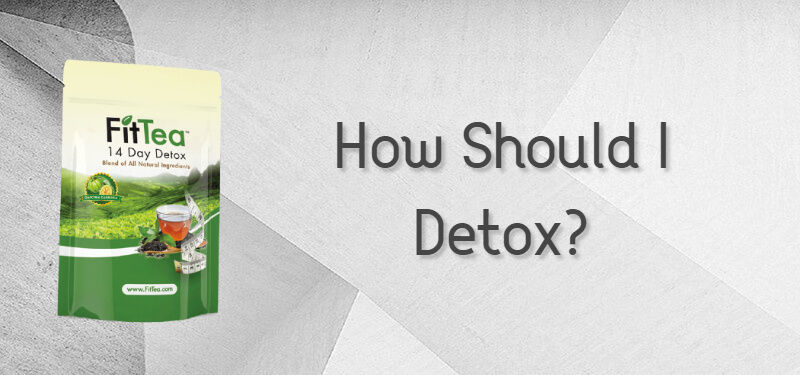
Before and after photos, clever marketing, and slick videos can be seductive. However, you shouldn’t be persuaded to entrust your health with any detox tea or supplement. Instead, approach your weight loss or fitness goals with a more encompassing approach.
A healthy body is perfectly capable of ‘detoxing’ itself when taken care of the right way. Here are some tips:
- Avoid excessive alcohol
- Make time for quality sleep
- Stay hydrated
- Eliminate processed food as much as possible
- Consume a whole food diet
- Exercise regularly
Our Verdict & Alternatives
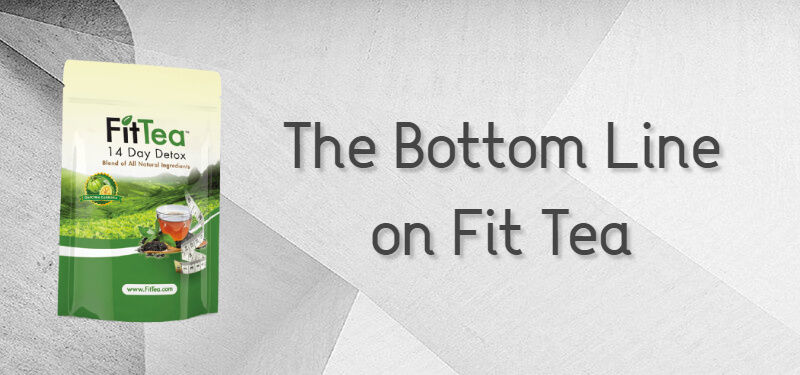
In a nutshell, Fit Tea is a very expensive, unproven product that is unlikely to cause any significant positive or negative effects in the body. Tea drinking is a perfectly healthy habit. However, you can incorporate organic green tea and ginger into your diet without spending extortionate sums on branded items.


